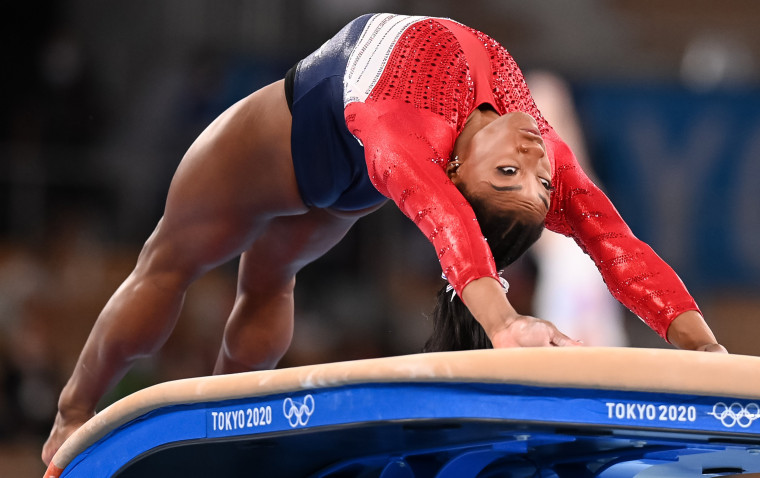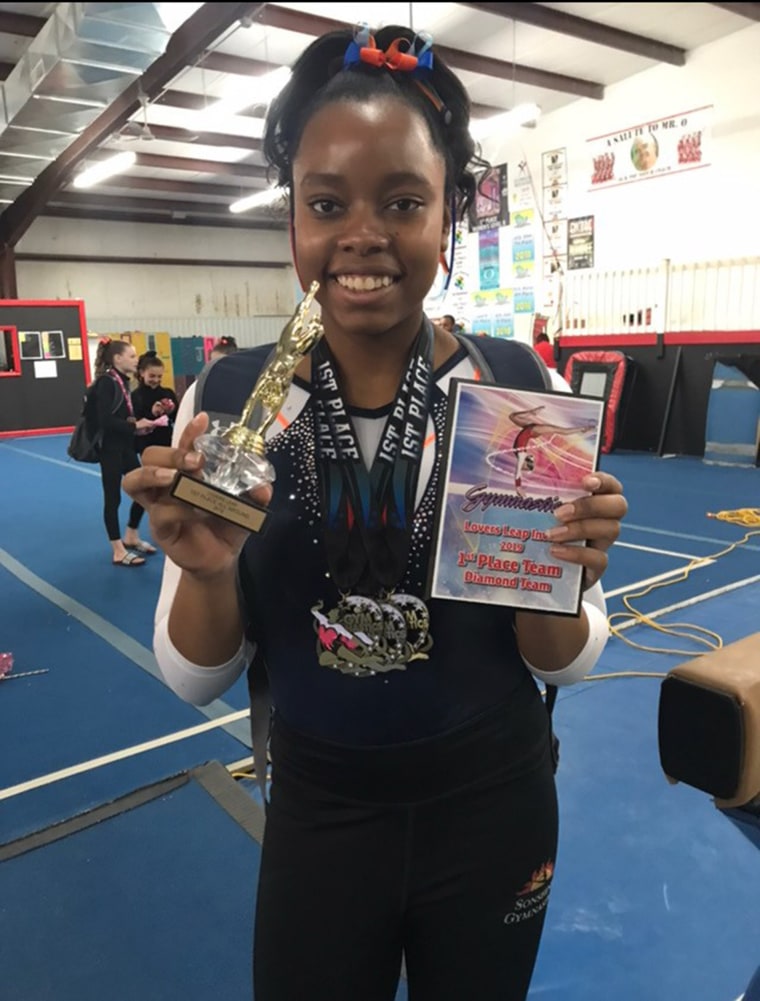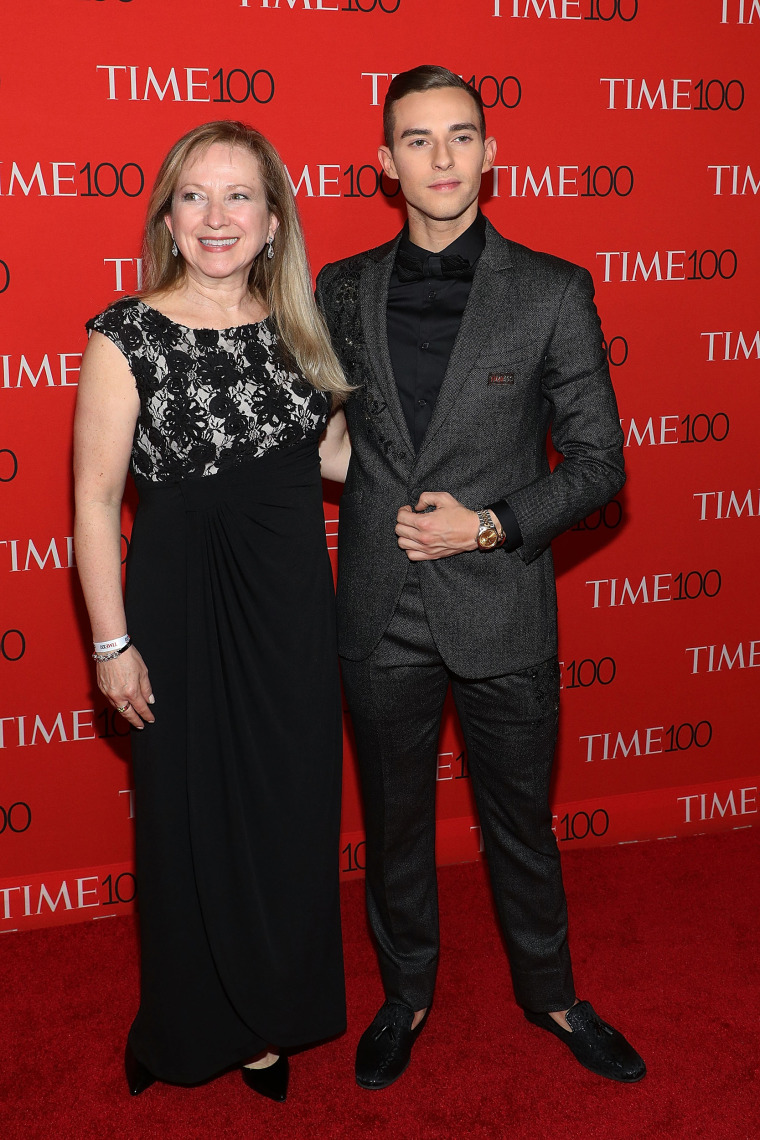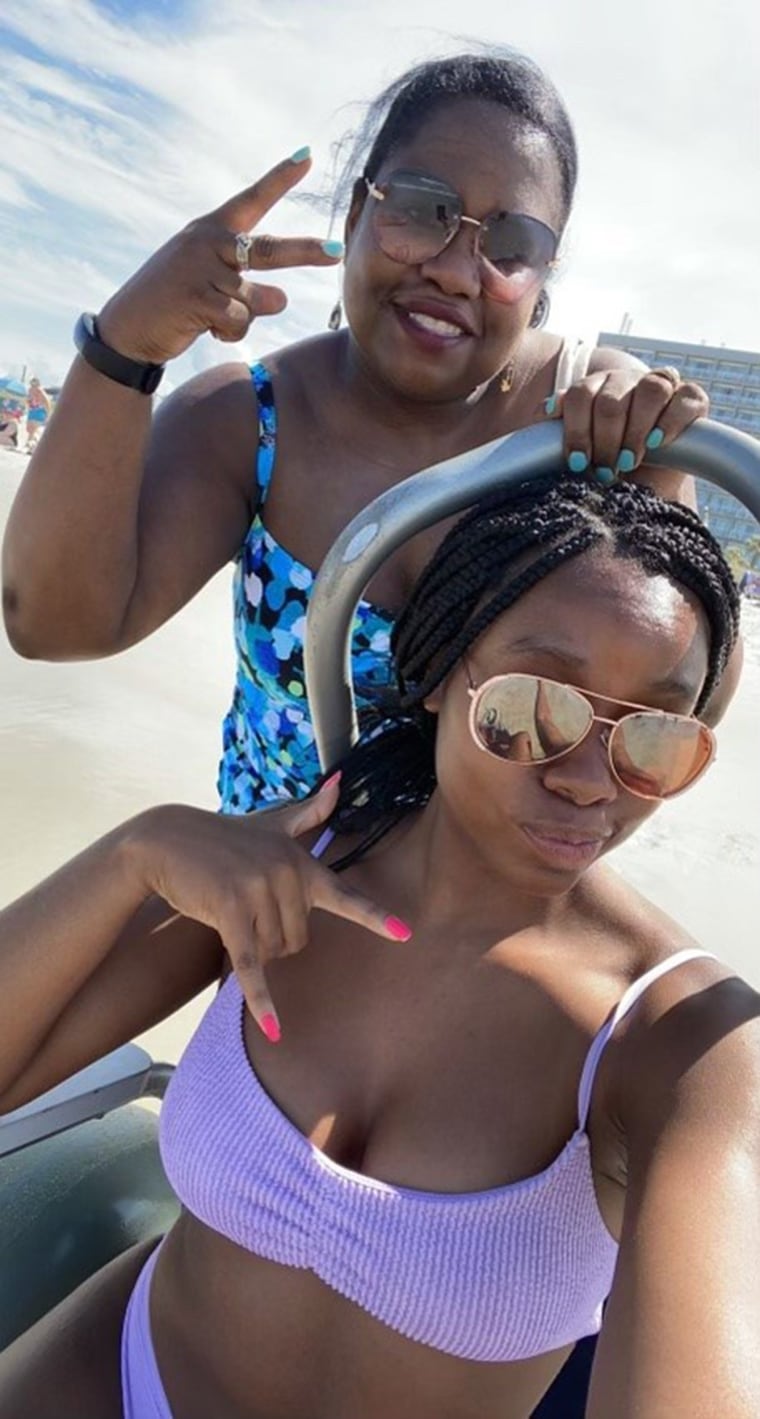A lot of people can learn from what Simone Biles did this week — and the biggest lesson may be for all the sports parents raising young competitors with mantras like "don't be a quitter" and "your team is depending on you."
When Biles prioritized her mental wellbeing and withdrew from competing in the Olympics gymnastics team and overall individual competitions, other athletes saw that it's OK to say that you are not OK sometimes. Young sports fans saw that even superstars such as 4-time gold medal winner Biles have bad days.

And parents can see that they have to balance encouraging their young athletes with paying attention to their mental health.
So, how do parents do this? TODAY.com talked to experts, parents and athletes for advice.
Know when it’s OK for kids to quit
Like most gymnasts, 15-year-old Kaiya Connor of North Carolina is a huge fan of Biles. And this week, her admiration only grew.
“I’m honestly proud of her for building up the courage to do that. Everyone this year has been putting a tremendous amount of pressure on calling her the ‘GOAT,’ and anytime she messes up even a tiny bit, everyone makes it such a big deal,” says Kaiya, who started competing at age 6 and did club gymnastics until age 14. “No one really thinks about the pressure they’re putting on her and even what she’s putting on herself.”

Kaiya says she considered quitting several times in her years of competing.
“My mom always reassured me I was just having a bad day and the next would be better. She was mainly always right, but when it gets to the point where you are dreading to go to practice and just aren’t enjoying it anymore, that’s when something needs to be done,” Kaiya says.
Kaiya’s mom, Angela Connor, says she’s guilty of being her daughter’s biggest cheerleader. “There is a fine line between being their biggest cheerleader and not listening to what it is they are telling you," she says. "That’s the balance we have to learn as parents.”
Connor says it was hard to hear when Kaiya, at age 14, ultimately decided to quit.
“But when I saw the passion leave, and she started talking to me very seriously about it, I knew it was time for me to listen harder than I’ve ever listened before and make sure it was about her and never myself or the team.”
Connor notes that gymnasts, as a group, are typically not complainers. "They are trained to be very hard workers... you just don’t hear a lot of complaints,” Connor says. “So it’s easy to tend to think they are OK."
Connor says she really had to watch her daughter's moods after practice and pay attention to how she felt on competition days. "It’s easy to make an assumption that they just love the sport especially if they aren’t speaking up. So, yes, there were times when I was concerned, but then I realized I needed to ask more questions.”
Ask your children what they want from you
When kids compete, they have plenty of people to evaluate them: coaches, competitors, parents, the crowd and even themselves. Catherine Butz, pediatric psychologist and clinical coordinator of the pediatric psychology program at Nationwide Children's Hospital in Columbus, Ohio, says parents need to establish their role by asking their kids what they want.
“Ask your kids what kind of input they want from you,” Butz says. “I think a lot of parents don't do that and they also have an opinion that they want to express.”
If your child says they do want input, reflect on the best timing. Do you want to say something right after a competition, or give time for everyone's emotions to settle? Waiting can lead to "a more productive, problem-solving, focused conversation,” Butz says.
Parents should also recognize that kids may not want to hear their input. Adolescents, especially, want to figure things out independently.
Be the parent
Kelly Rippon, mom of Olympic bronze medalist figure skater Adam Rippon, has great advice for how to be a good sports parent. Start, she says, by “maintaining the role of parent.”

Rippon, author of “Parent Up: Inspire Your Child To be Their Best Self,” says when athletes struggle, especially when they are competing at an elite level such as Biles, it’s easy to assume they should know how to cope with it.
“We are all vulnerable to situational anxiety, and I wish people were not so quick to judge that just because you're super talented, it doesn’t mean you shouldn't have performance anxiety,” she said.
“I hope parents see that sometimes there is a dangerous level of anxiety that is not nervousness and that you shouldn't be powering through," Rippon says. "I really admire [Biles] for just knowing her body well enough to say, ‘You know what, I am not safe if I do this.’”
Know that athletes have a breaking point
In sports, athletes are always told to pay attention to their bodies and to deal with injuries. Being aware of their mental health is just as important, if not even more important, says Jill Emanuele, senior director of the Mood Disorders Center at the Child Mind Institute in New York City.
“Parents need to teach kids that they have to pay attention to how they're feeling and what's going on, and also how what they're feeling affects their body,” she says.
Parents and coaches tend to reward mental toughness and persevering in difficult situations.
Parents should recognize, however, that every child has a breaking point.

“There is a line when it becomes too much. When a person can only reach what they are capable of in that moment. And sure, they can push a little harder, but at some point they are at the line where they can break," Emanuele says.
“It’s up to parents to teach kids how to find that line ... and to know when they are able to continue to push and try harder and really see how far they can go and also when they've reached their limit,” Emanuele said. “And that's not something that just comes naturally to people; you have to be taught that — it has to be modeled.”
Biles and other athletes like Naomi Osaka saying they have limits that are mental as well as physical is a gift for so many people, Emanuele said. “This is such important role modeling, not only for kids their age, or people in their generation, but for everybody.”





